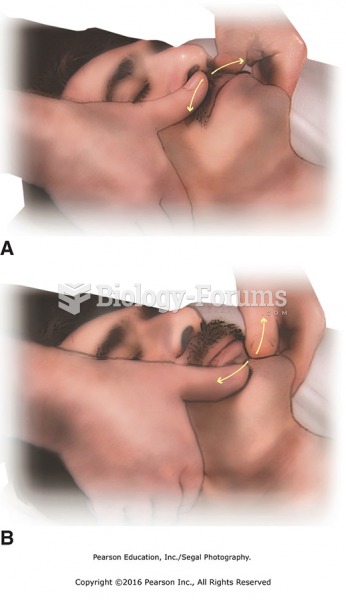This topic contains a solution. Click here to go to the answer
|
|
|
Did you know?
According to research, pregnant women tend to eat more if carrying a baby boy. Male fetuses may secrete a chemical that stimulates their mothers to step up her energy intake.
Did you know?
Medication errors are three times higher among children and infants than with adults.
Did you know?
As the western states of America were settled, pioneers often had to drink rancid water from ponds and other sources. This often resulted in chronic diarrhea, causing many cases of dehydration and death that could have been avoided if clean water had been available.
Did you know?
The calories found in one piece of cherry cheesecake could light a 60-watt light bulb for 1.5 hours.
Did you know?
The longest a person has survived after a heart transplant is 24 years.
 Organisms exhibit a diversity of behaviours, which include (clockwise from upper left), foraging and
Organisms exhibit a diversity of behaviours, which include (clockwise from upper left), foraging and
 Standing at the head of the table, apply effleurage to upper trapezius from neck to shoulder using a ...
Standing at the head of the table, apply effleurage to upper trapezius from neck to shoulder using a ...
 Wag the arm to mobilize the joints of the upper extremities. Grasp the hand and lift the arm off the ...
Wag the arm to mobilize the joints of the upper extremities. Grasp the hand and lift the arm off the ...




